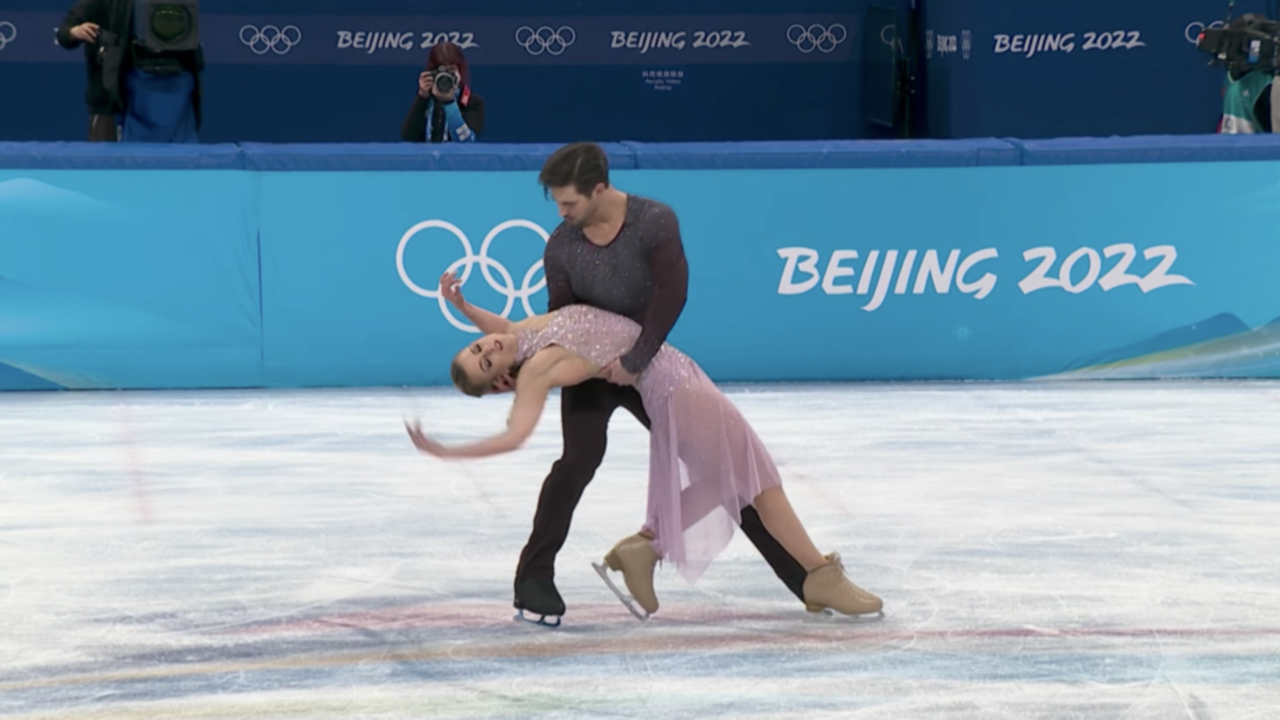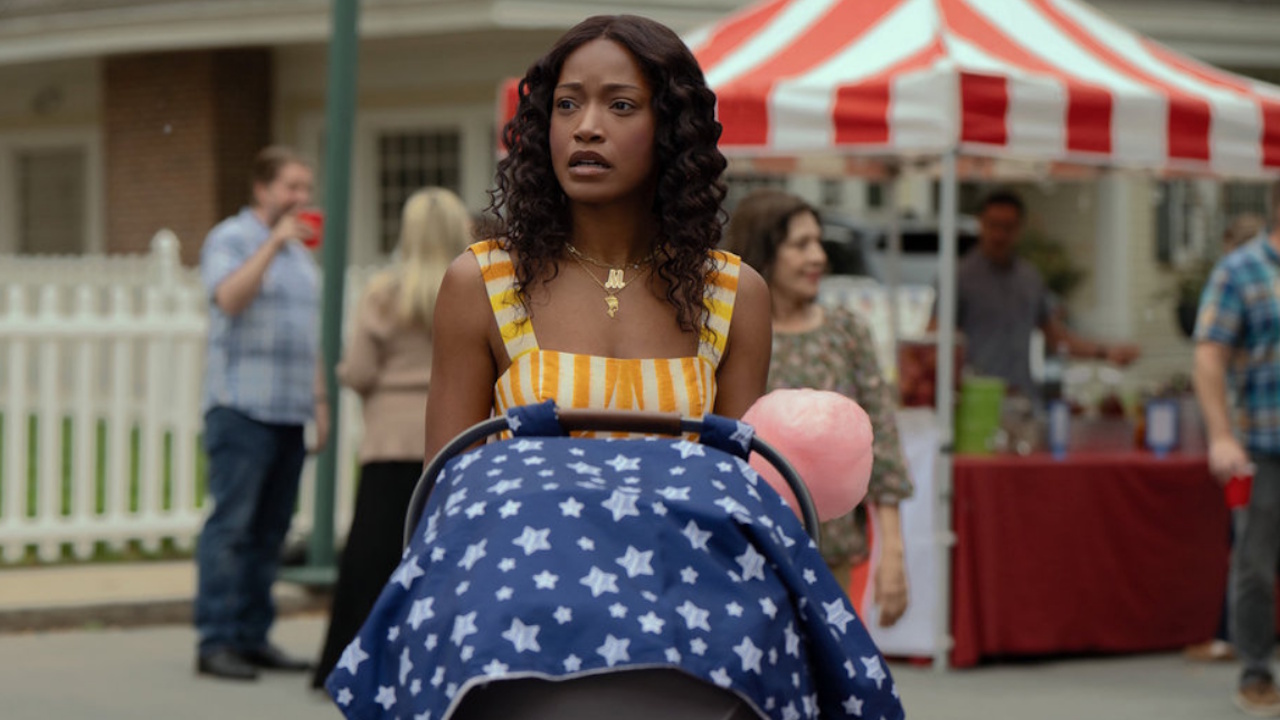Why The Olympics Need Experts To Explain Judging For Figure Skating And More Events, According To Winter Gold Host Adnan Virk
The 2022 Winter Olympics in Beijing are still going strong, and Winter Gold host Adnan Virk broke down why expert analysis is "vital" to understanding judge decisions.

Your Daily Blend of Entertainment News
You are now subscribed
Your newsletter sign-up was successful
The 2022 Olympics have made history in some events while generating controversy in others like with Kamila Valieva's situation, and the Beijing Games aren't over just yet. Some events, like hockey and curling, have scoring systems that aren't too complicated to understand even for fans who only watch every four years, but others like figure skating and snowboarding rely on judging to determine the points for who makes the podium. Veteran sports broadcaster Adnan Virk, who hosts Winter Gold for comprehensive Olympics coverage on Peacock, explained why the Olympics need experts to explain judge decisions.
Two of the most notable controversies of the 2022 Olympics have involved events that rely on scoring from judges' determinations. Japanese snowboarder Ayuma Hirano was given a score that had fans and commentators alike criticizing the judges, although Hirano did go on to win the gold. Then, of course, Russian figure skater Kamila Valieva's failed drug test has been denounced by former Olympians across the board. When I spoke with Winter Gold's Adnan Virk, I asked for his perspective on the importance of analysis for events like figure skating that are decided by judging vs. events like hockey, and he shared:
Obviously I'm a big hockey fan. I've worked in Canada. I quite like figure skating. Again, in Canada, there's a rich history from Elvis Stojko to Kurt Browning. There's been great figure skaters. Curling, again, I understand growing up in Canada. But some of those other sports are a little bit of a challenge. I have not followed snowboard cross or any of those so-called X Games events. I have deep appreciation and respect for them, but I don't know what the hell I'm watching. I'm reading the highlights the next morning, and of course very smart people are watching the shows and then telling me what to say. To your point, a lot of it is based on judging. So I can't imagine if you're watching it live [without commentary] unless you're a real expert in it, which not many people are. 'Okay, that's worth five points here. There's ten points there. That's a deduction.' Like the ice dance! Again, you mention figure skating, that's scored by judging. There was a point deduction because one lift was longer than 12 seconds. So I think it's indispensable to have people who are true experts. And I think for all of us, whatever it is in life, you can respect anybody who's an expert.
Figure skating scoring can simply be hard to follow for any viewers who aren't experts in the sport, which is why commentators like former Olympians Tara Lipinski (who won gold in women's singles in 1998) and Johnny Weir are so valuable (and have not held back with their thoughts on Kamila Valieva being allowed to compete). As Adnan Virk noted, there was a deduction in ice dance in Beijing for a lift that went too long, and that point deduction knocked Americans Madison Hubbell and Zachary Donohue down from a potential silver medal to earning bronze.
Even with the boost in ice dance popularity at the 2018 Games in Pyeongchang (partly thanks to Leslie Jones and Adam Rippon's commentary on Canadian gold medalists Tessa Virtue and Scott Moir), what causal viewer would have known that Hubbell and Donahue's lovely lift was too long? And that's just one example from one of the events that is determined by judging rather than scoring. Adnan Virk went on to praise some of the skating experts who have appeared on Winter Gold and name another sport that benefits from analysis:
I think when watching these events to actually have former athletes who have done it, you can't put a price on that. On the figure skating coverage, we've interviewed on our show Brian Boitano, Scott Hamilton. Everyone just knows that pedigree. 'Yep, gold medal winner. They know what they're talking about.' I'm a huge fan of ski jumping. I just find it fascinating. It's just people flying through the air, but it is not simply the furthest distance. To your point, there's also a judging aspect of it. It's not just, 'This person went 130 meters, this one went 124.' There's judging as far as the take offs, and this and that. So I have found personally it is not a type of sport where you can just watch it passively. I think you have to watch it with the volume on because those experts can explain. 'Here's what the judges were thinking, here's where I disagree with them. But here's what they were thinking. Here's how I would have done it.' I think all the expert analysis is vital to the overall product because as you said, we don't all know these sports intimately well.
Considering the sheer number of winter sports presented at the Olympics (with even more added for the 2022 Games), few people can be experts on every event, which is where both analysis and recaps come in handy. Adnan Virk's Winter Gold on Peacock provides a rundown of the highlights of all the events at the Games, to give updates for fans who may not have had time to watch everything and shed some light on what fans might not have fully understood the first time around.
One feature of the show is a game called "Play, Maybe, No Way" that asks guests to name some events they'd like to try, perhaps try, and never try. When I asked Virk to pick his three events, he chose ski jumping for "Play" to "try that feeling of at least flying even for like five milliseconds," even if he'd want to try the "prelim baby hill." For his "Maybe," Virk listed the luge because he could "just close my eyes and feel like I'm going somewhere." For "No Way," he turned to figure skating:
It's a no way on ice dance… But the twizzle is incredible. I've learned what the twizzle is. That's when they both start kind of moving in synchronicity. Like, it's amazing. Oh my God, a good twizzle you can't beat.
Ice dance may not look like the most treacherous winter sport compared to ski jumping or snowboarding, but few people can have the grace or technique to pull off a twizzle, let alone a full routine! As a fan of ice dance who considered it a highlight of 2018 with the Pyeongchang Olympics, I noted that the marks on the ice after twizzles is something impressive to look at, and Virk commented:
Your Daily Blend of Entertainment News
Yeah, 'cause then you can really appreciate it! Again, if you're a judge, like, 'Okay, what am I seeing here?' If you start to follow it, you can go, 'Okay, I can see where that's a point there. That's a deduction there. Okay, cool.' You're right, an overhead shot of the ice would be really, really cool.
The Winter Gold host also pointed out the appeal of another sport that happens on the ice, although not with the athletes wearing skates. Adnan Virk broke down the advantages of watching Olympic curling:
That's what we were talking about with curling. Someone was saying to me, 'What's the point of sweeping?' And I said 'It causes friction.' If you want the stone to go further, you start sweeping like crazy, causing that friction. If not, you're kind of just waiting.' The great thing with curling is you can hear what they're saying. Right? You know the strategy. It's a rare sport where they tell you what they're gonna do before they do it. Imagine in football, it's Matthew Stafford. You knew he's throwing the ball... That happens in curling. You can literally hear them saying 'Okay, I'm gonna hit and stick.' 'Okay, here we go.' And then you see if they can actually do it. It's so cool.
Considering that Matthew Stafford just helped the Los Angeles Rams win the Super Bowl against the Cincinnati Bengals, a comparison to that NFL quarterback should come as a compliment! Football may not be featured at the Winter Olympics, but you can catch up on all the events you might have missed with episodes of Adnan Virk's Winter Gold, available streaming now with a Peacock subscription and releasing new episodes daily at 11 a.m. ET.

Laura turned a lifelong love of television into a valid reason to write and think about TV on a daily basis. She's not a doctor, lawyer, or detective, but watches a lot of them in primetime. CinemaBlend's resident expert and interviewer for One Chicago, the galaxy far, far away, and a variety of other primetime television. Will not time travel and can cite multiple TV shows to explain why. She does, however, want to believe that she can sneak references to The X-Files into daily conversation (and author bios).
